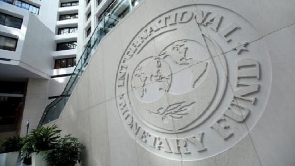The External Sector Report of the International Monetary Fund (IMF) has said policy efforts in the near term should continue to focus on providing lifelines and promoting economic recovery.
The report said countries with flexible exchange rates would benefit from continuing to allow them to adjust in response to external conditions, where feasible.
“Foreign exchange intervention, where needed and where reserves are adequate, could help alleviate disorderly market conditions. For economies facing disruptive balance of payments pressures and without access to private external financing, official financing and swap lines can help provide economic relief and preserve critical health care spending,” it stated.
It added: “Tariff and nontariff barriers to trade should be avoided, especially on medical equipment and supplies, and recent new restrictions on trade rolled back. Using tariffs to target bilateral trade balances is costly for trade and growth, and tends to trigger offsetting currency movements.
“Tariffs are also generally ineffective for reducing excess external imbalances and currency misalignments, which requires addressing underlying macroeconomic and structural distortions. Modernizing the multilateral rules-based trading system and strengthening rules on subsidies and technology transfer is warranted, including by expanding the rule book on services and e-commerce and ensuring a well-functioning WTO dispute settlement system.
“Over the medium term, reducing excess imbalances in the global economy will require joint efforts on the part of both excess surplus and excess deficit countries. Economic and policy distortions that predated the COVID-19 crisis might persist or worsen, suggesting the need for reforms tailored to country-specific circumstances.
“In economies where excess current account deficits before the crisis reflected larger-than-desirable fiscal deficits (as in the United States) and where such imbalances persist, fiscal consolidation over the medium term would promote debt sustainability, reduce the excess current account gap, and facilitate raising international reserves where needed (as in Argentina). Countries with export competitiveness challenges would benefit from productivity-raising reforms.
“In economies where excess current account surpluses that existed before the crisis persist, prioritizing reforms that encourage investment and discourage excessive private saving are warranted.
“In economies with remaining fiscal space, a growth-oriented fiscal policy would strengthen economic resilience and narrow the excess current account surplus. In some cases, reforms to discourage excessive precautionary saving may also be warranted (as in Thailand and Malaysia) including by expanding the social safety net.”
Click to view details



Business News of Wednesday, 5 August 2020
Source: laudbusiness.com

















